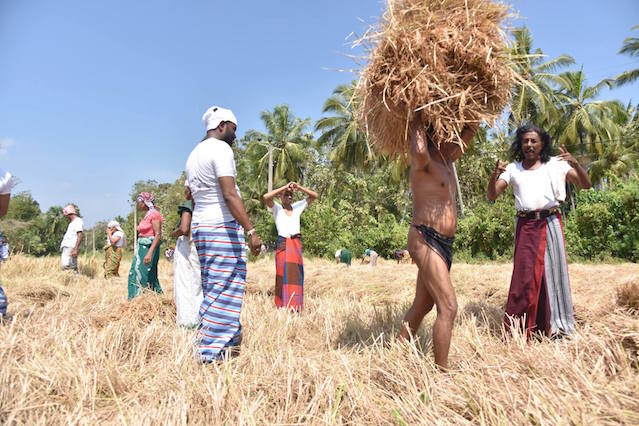A Brief Colonial History Of Ceylon(SriLanka)
Sri Lanka: One Island Two Nations
A Brief Colonial History Of Ceylon(SriLanka)
Sri Lanka: One Island Two Nations
(Full Story)
Search This Blog
Back to 500BC.
==========================
Thiranjala Weerasinghe sj.- One Island Two Nations
?????????????????????????????????????????????????Thursday, May 10, 2018
The Glyphosate Challenge


As a professional who had been boycotted by successive governments for
35 years, it was a surprise to find myself on a “Government Committee”
addressing the issue of Glyphosate.
It was also salutary to see the level of professionalism and sense of
National responsibility. It was also a great lesson on the ways and
means to achieve political goals, never mind the civic responsibility.
As I had opposed the lifting of the current ban on the on Ecological and
Public Health ground at at the sittings of the Parliamentary committees
and presented my arguments I assumed that my job was done and the
politicians could decide the outcome. That was over I thought. The
Glyphosate debate continued to rage, presenting both sides of the
argument to the public. This was good because many of us are more
informed as a consequence. I, like the rest of the country awaited an
informed decision by the government. Them
much to my surprise I am summoned to a meeting at the Presidential
Secretariat to consider a ‘Compromised Approach’ to the Glyphosate
question.
The meeting was to re-examine the proposal by the Ministry of Plantation
Industries to revoke the ban on the use of Glyphosate for the tea and
rubber plantation sector. The arguments for and against lined up to
demonstrate that for every concern on the use of Glyphosate, there was a
pro and con argument. When it was suggested that the ‘Precautionary
Principle’ is important in Public Health matters and that there was
‘leakage’ that has entered the bodies of people, the committee was given
the assurance that the plantation industries will assure no leakage
into the black market or into the waterways. The last, is a very
important and critical aspect of protecting public health. Thus the following consideration was accepted if the plantation industry was using it.
“Revoke the ban imposed on Glyphosate ONLY for Tea and Rubber Sectors
for a period of 36 months, effective from the date that the TRI and RRI
design and develop an effective mechanism to ensure strict control of
its use and the follow up monitoring mechanism in consultation with
Registrar of Pesticides (ROP) and other relevant regulatory bodies (CEA,
NSWDB, Health Department, etc.) to
prevent the misuse and overuse of Glyphosate, especially the illegal
transfer of issued Glyphosate to other crop sectors and environmental
leakage to the water bodies;”
This means that the TRI and RRI will monitor to test if there is any
leakage of Glyphosate into water bodies once the industry uses it. The
million Rupee question is Who is responsible if a leak of Glyphosate has
been detected outside the area of application? The importing country?
the plantation industry? TRI
and RRI? Also what will be the level of the fine at detection? Further
if leakage is detected will ban be re-imposed? All this must become a
part of any license given to use Glyphosate. To lift the bar without
clarifying these questions, will be very partial indeed. As it is the
President’s office coordinating this initiative, there is confidence
that the well-being of the public is tantamount and that there must be
accountability by commercial operators who could impact public
well-being.
Maybe I will need to wait another 35 years to get on a ‘Government Committee’ because of this letter!


